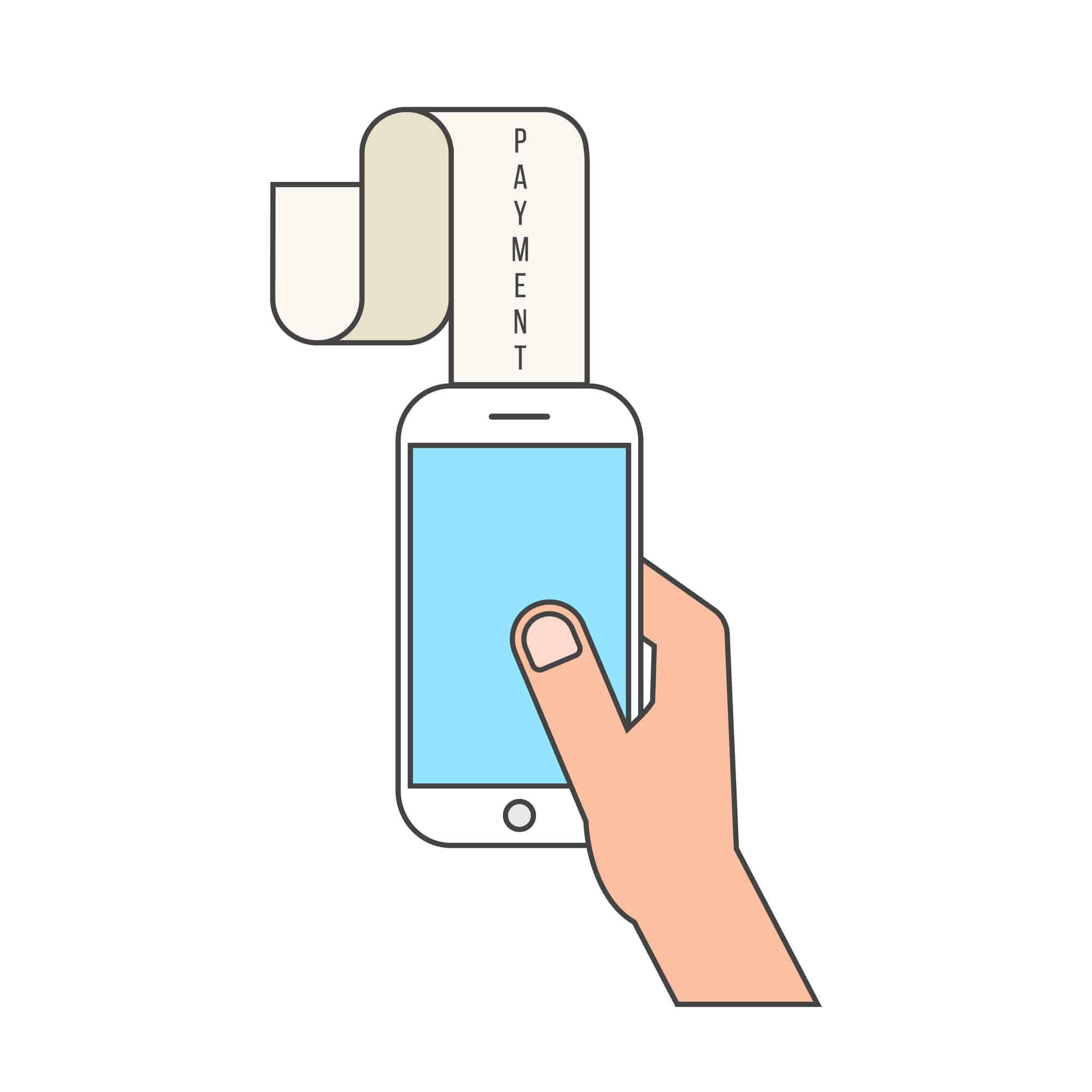Repeat after me:
There is no such thing as job security.
There is no such thing as job security.
Even in Japan, where for a long time it was generally understood that once you started working for a company, you worked for that company for life, those ways are coming to an end.
Yes, I know your parents told you everything would be okay if you to go to school, get good grades, become a college graduate, and find a good job with a good company.
Well, it’s not ok!
Everything isn’t going to be ok.
The world may have worked that way in the past, but it certainly doesn’t now.
You can “do everything right” and not even get a job at all.
There is no such thing as seniority.
There is no such thing as entitlement.
There is no such thing as “paying your dues,” at least not in terms of having some employer owe you something because you did it.
So, get the idea of job security and stability out of your head right now.
Get comfortable with being uncomfortable.
Get comfortable with facing the unknown and trading your expectations for adaptation, and paradoxically, that job security and stability you are seeking will come to you.
Just in a different way than you expect.
It’s Unstable, And That’s Ok
You might be thinking everything I said above was to shock you a little bit and now I’m actually going to tell you that it is going to be alright and it is all going to be ok.
I’m not.
It’s not.
And that IS ok.
The world will never be like it was.
Regardless of what any political candidate says, the “jobs” are not coming back.
They are gone forever and how we work has changed and continues to change.
You just can’t expect to get a job with a company and stay there for 20 or 30 years until you get a retirement or pension anymore.
There is too much disruption.
The rate of change is too damn fast.
Take a look at Blackberry.
Blackberry was the king of the mobile market.
No one saw them going anywhere and then BOOM, overnight they were circling the drain.
So, even if you had a great job as a software developer at Blackberry and you had been there for years, you suddenly found yourself in a place where you didn’t quite feel that stable anymore.
The truth is, you never were.
And wherever you are now, or wherever you are hoping to be, you are not stable there either.
It’s just the nature of the current work environment, and it goes both ways.
These days employers can’t count on their employees being there forever, either.
It used to be a black mark on your resume to have worked for multiple companies in a fairly short timespan. Now it’s the norm.
The sooner you realize this, the better off you’ll be, because it greatly affects the choices you make.
Think about it.
If you are looking for a job and expect to be working at whatever company hires you for the next 20 years of your life, you are very likely to make a different decision than if you assume you might only be there for a few years at the most.
Too many software developers are acting like it’s still the 1970s. It’s not.
Too many software developers are picking jobs at “stable” companies instead of taking better, “riskier” opportunities, because they think that a big behemoth of a company can’t go down as fast as a startup. WRONG.
Accept that the current business world, especially where technology is concerned, is inherently unstable.
Do you have an “oh shit” plan, a playbook you can start executing immediately if your boss walks in tomorrow and hands you a pink slip? You can download an “in case of emergency, break glass” emergency job hunt toolkit right here. Knowing exactly what you’d do in this situation will remove the fear and give you confidence that you can handle anything that comes at you.
Stop trying to find stability; instead, work on making yourself more robust and adaptable so that you are always employable.
Job Security Doesn’t Come From Hoarding Knowledge
We’ll get back to talking about stability in a bit, but before we do, I want to take a moment to tackle job security, because some of the things people do to try and achieve job security are ass-backwards and pretty damn lame, if you ask me.
One of the worst things that many software developers do when trying to be more secure is hoard knowledge.
Instead of openly sharing what they are learning, and teaching other people how to do their jobs so life will still go on if they get hit by a bus, they do the opposite.
They purposely convolute things and try to make sure they are the only person who knows how the build system works or how to work on this hairy part of the architecture.
They are trying to create an environment where if they do get hit by a bus, the world would basically end.
Well, well, I got news for you.
It doesn’t matter how important you think you are, or what “secrets” you know, the world does go on.
Your guts are cleaned off the grill of the bus, someone else gets hired to do your job, and everyone else puts together the pieces to finally figure out how you did what you did.
And when they do, they realize that what you were doing wasn’t all that important after all — they could have gotten rid of you a long time ago (and they probably should have, asshole).
Don’t do this.
This is NOT the way to create job security.
It’s just going to piss people off and make you less valuable, not only to your current company, but to any other company.
You could have been spending all that time and effort learning new things, teaching other people what you learned and improving your own skills, but instead you wasted it, trying to hold onto something you can’t hold onto anyway.
Perhaps you could have mild success at this technique and temporarily hold a company hostage, but eventually, they’ll pull off the duct tape, kick their feet through a loose floorboard, and go running down the street.
You can’t stop progress.
Instead, Do The Opposite
Ironically, you can achieve the highest level of job security by purposely trying to make yourself unnecessary.
I know it seems counterproductive and I know that many well-meaning elders may have given you the advice to not give away all your secrets or you won’t be needed anymore.
But, it turns out that the most valuable employees any company can have are the ones who make their own jobs unnecessary by automating as much of it as possible and training other employees to be able to do what they can do.
And yes, if you make your job unnecessary, you won’t keep that job, but you won’t get fired either.
You’ll get promoted.
That’s where real job security lies — being so valuable that everything you touch turns to gold, so you just keep being put in charge of more and more things to touch.
You see, as a lone software developer working for a company, you can only do so much.
You can be a very good coder, but you are going to have some real limits on what you can accomplish in a day.
But if you can help your fellow software developers accomplish more, or you can automate parts of your job so that you don’t have to manually do them anymore, you are using the power of leverage to become way more effective than any single employee working on their own.
The more you share what you know, the more valuable you become, and that is the only true form of job security that exists today.
Replace Stability With Ability
Ultimately, job stability and security is best achieved not by securing that perfect job with that stable company and holding the company hostage with critical secrets about how to do your job that only you know, but rather by becoming more valuable by both accumulating knowledge and sharing it freely.
Instead of trying to play political games to secure your position and betting on the right horse of stability, how about setting yourself up so that you don’t need job security or stability?
Why not consider the strategy of increasing your own abilities to the point where you can easily get a new job whenever you want, instead of putting your hopes into one company or one job at a particular company?
Become so valuable that companies will be clamoring to hire you and suddenly job security and stability seems like a silly notion.
This is the better strategy, because this strategy relies on what you can control––you––instead of on external factors you cannot control.
And, like I said before, times have changed.
Today, there is only an illusion of job security and stability.
So, it’s a much more profitable and intelligent strategy to become self-reliant by increasing your ability than to count on any kind of security or stability in any job.
Create Your Own Safety Net
One of the best ways to never have to worry about job security or stability again is to create your own safety net of three to six months of living expenses saved up for a rainy day.
I am constantly amazed how many software developers, and people in general, live paycheck to paycheck.
It just doesn’t make any sense and there is no excuse for it.
If you are living paycheck to paycheck, you are putting yourself in what I call a “squeeze” situation, where if one thing goes wrong in your life, financially it can set off a cascade of problems until your whole life can self-destruct right before your eyes.
If you are relying on your next paycheck to pay your rent and other bills, of course you are going to be overly concerned about job security and stability, because losing your job is going to have drastic effects on your life.
But if you’ve got a nice savings cushion of a few months of living expenses, you don’t necessarily want to lose your job, but if you do, it’s not a huge deal because you have plenty of time to find another one — a better one.
Now when I say this, most people agree.
They nod their heads and say “Yeah, that makes sense.”
But then they tell me that they wish they could save a few months of living expenses, but they just can’t right now.
They tell me some sob story about the bills they have or how they are barely making enough to get by as it is and that once they get that raise or they pay off that car, then they’ll start saving and building their safety net.
Bullshit!
I don’t care how little or how much you make, there is no reason why you can’t start putting away at least 10 percent of your income into a reserve account today — TODAY!
If you think you can’t afford it, you are living far beyond your means.
Perhaps you need to get a smaller house or an older car.
Perhaps you need to stop eating out five times a week and stop going out to the movies.
Perhaps you don’t need that expensive data plan on your cell phone. Heck, maybe you can do without a cell phone completely for a while.
Cut out cable, pack your lunch, downsize your car, your house, do whatever it takes to get to the point where you can save at least 10 percent of what you are earning so you can start building that reserve.
If you start now, you can have three months worth of living expenses saved up in a couple of years.
Then you’ll never have to worry about job security again.
Won’t that feel great?
Isn’t that worth a small sacrifice?
For the past 10 years, I’ve always had at least a year’s worth of reserves saved up.
Do you know the power you have when you have a year's worth of living expenses in your bank account?
You can literally tell your boss to f-off and not care, because you’ve got enough runway to spend a whole year looking for another job. (Not that this is recommended.)
It feels great.
Plus, you never have to balance a checkbook again.
I can’t remember the last time I had to balance my checkbook.
And it’s not because I’m rich and have a ton of money. It’s because I make sure that I always live far below my means so that I will never be put into a squeeze situation.
Even when I made far less than I do now, I still had plenty of reserves saved up and didn’t worry about losing my job or balancing my checkbook.
One of the best books on this subject, which I highly recommend, is called The Richest Man in Babylon.
I highly recommend you read that book and commit to living by its principles.
|Hey John| I love what you're saying but I can't get my spouse onboard. They are out of control with spending. Help!
This is a tough one.
Unfortunately, there isn’t really an easy or one-size-fits-all solution, but here is some general advice.
First of all, recognize that you can’t control other people and what they do — even your spouse — but, you can control what you do.
So, even though your spouse may be sabotaging your efforts to get your spending under control, you can still exercise principled restraint and frugality, which will at least make some impact and will also serve as an example.
Often leading by example is the best way to get someone to do something.
If you start acting wiser with monetary decisions and start being more frugal, there is a good chance your spouse will eventually start to develop some of the same habits–not guaranteed, but worth a try.
Secondly, make sure you’ve communicated clearly to your spouse exactly what kind of financial changes you’d like to make and why.
Try to do it in a non-judgmental way, but be very clear about what you want and talk in terms of what you intend to do, not in terms of what you are requiring your spouse to do.
Ask the question, “how can we achieve this goal together?” in order to create buy-in and the feeling of a joint effort.
Finally, recognize you are ultimately in charge of your own life.
If you have a spouse that isn’t willing to cooperate at all with your financial plans, you might want to reevaluate whether you want to spend the rest of your life living paycheck-to-paycheck.
I’m not suggesting you get a divorce if your spouse insists on buying Gucci handbags or the latest tech gadget, but you might want to think carefully about what you will and will not allow in your life and how important it is to you.
You may need to set clear boundaries and say that you will not allow your financial future to be jeopardized and make it very clear in what ways you feel that the actions of your spouse are doing so and then take appropriate action.
Remember, in life you always have three choices for any given situation:
- Accept it
- Change it
- Remove yourself from it
If you can’t accept it or change it, you may have to remove yourself from it.
Embracing Uncertainty
I’ll end this chapter with one final nail in the job-security-and-stability coffin: embrace, instead of avoid, uncertainty.
Last year, I went to one of Tony Robbins’ most famous seminars called Date With Destiny.
It’s an extensive six-day program where you basically deconstruct and then reconstruct yourself and your life based on the values that you want to live your life by.
It’s a life-changing event — I highly recommend it.
Anyway, at this seminar, he said something that was extremely powerful, fundamentally altering the way I look at life and changing my whole outlook on stability and certainty.
You see, up until that point in my life I was chasing certainty, security and stability.
I was trying to build up an impenetrable fortress around my life, my finances, and my future.
I was trying to make it so nothing bad could possibly happen to me.
I wanted to nail down every floorboard, make my ship unsinkable.
I spent a great deal of my life trying to achieve this goal.
But, I realized by doing this, I was actually decreasing the overall quality of my life.
Not only was I decreasing my overall life quality, but I was also trying to achieve an impossible goal.
No matter how much money you have, or how good your job is, or how much you’ve tried to protect and hold on to what you have, there is always some risk.
There is always some chance that whatever you have could be taken away from you.
When you do everything in your power to prevent that from happening, you suck the joy right out of life.
Instead, I’ve found that by actually embracing uncertainty, paradoxically, like Tony said, the quality of my life dramatically improved.
When I made that pivot in my own life, all of a sudden I wasn’t as stressed out.
I still work hard and I still try to make wise decisions, but I do what I can and then I leave the rest up to fate.
I can’t control fate and I don’t even bother trying.
Life is much more enjoyable when you don’t try to control things you have no control over and you are willing to accept whatever comes your way — it’s also more exciting.
My final piece of advice for you would be to embrace uncertainty. (A good book on this subject is Mark Manson's The Subtle Art of Not Giving a Fuck.
Yes, it’s a good idea to increase your abilities so that you can find a new job much more easily.
Yes, it’s a great idea to make yourself more valuable at your current position by sharing all the knowledge you can instead of hoarding it.
Yes, it’s a fantastic idea to build your own safety net so that no matter what happens to you financially you can weather the storm.
But, you can do all that and still be taken by what one of my favorite authors, Nicholas Taleb, calls a black swan event, and lose it all.
So, why not embrace uncertainty and just accept it as a natural part of life?




